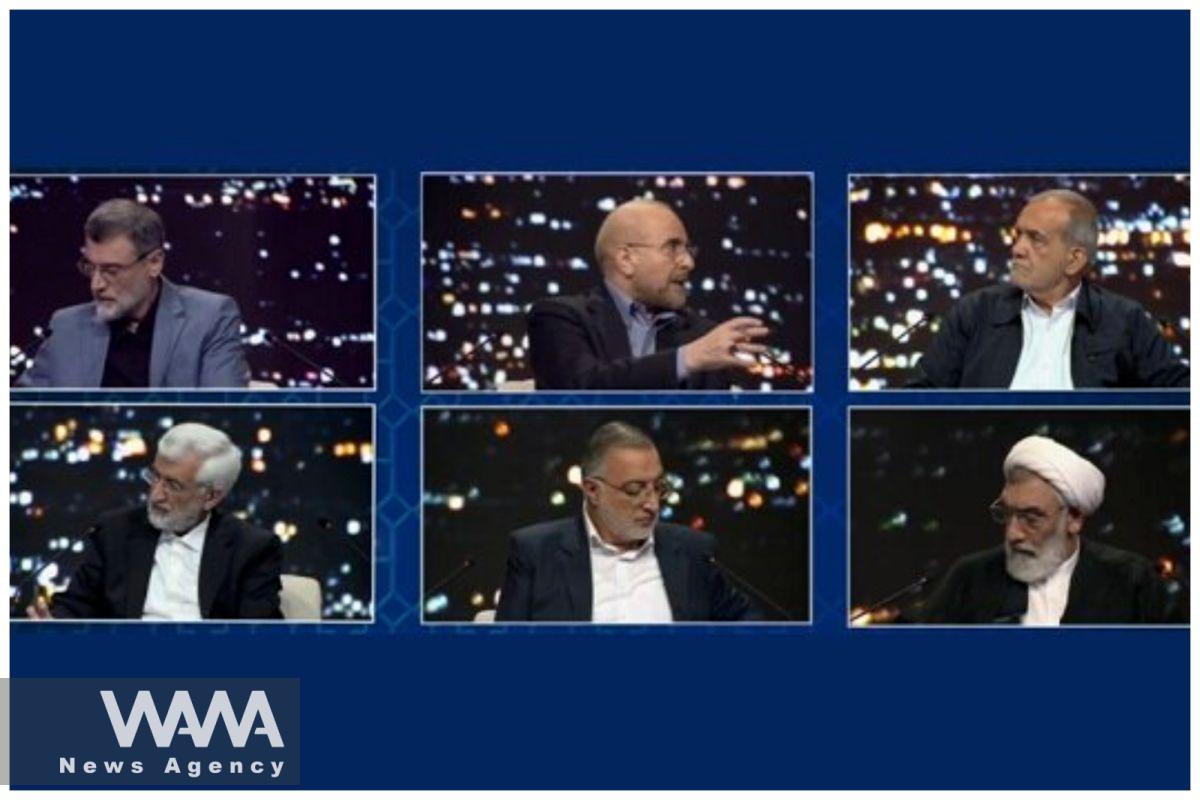Second Iran’s Presidential Debate Quotes
WANA (June 21) – The second presidential debate for Iran’s 2024 snap election, scheduled for June 28, has been aired on national television. The six contenders have presented their blueprints on the country’s economic and social issues. The first debate, which aired on Monday, centered exclusively on the economy and covered important topics such as economic development plans, sanctions, inflation, foreign trade, and investments. What follows is a snippet of their remarks in the second debate.
Anyone who is honest with the people and believes in what they say will have support behind him.
To eradicate poverty, we must believe in people and involve them (in decision-making). We need to establish a close and friendly relationship with people.
Respect must be shown to academics and elites, and partisan and factional confrontations should be set aside.
Whether I become president or remain a (parliament) representative, we must reach out to those whose voices are not heard.
If students feel they are effective in the country’s growth, they will be enthusiastic.
People must be able to contribute to the country’s progress, and everyone with talent should flourish.
We need to reduce the diversity of policymaking institutions in health care. We have successful experiences in the healthcare network.
If we say that air pollution, dietary habits, road accidents, etc, can endanger health, who should plan for them? This responsibility falls on the country’s president and the Supreme Council of Health.
The subsidies people receive can increase by 30-40 percent.
The education system determines the future of the country. Education begins in the family and continues in all educational structures, such as schools, mosques, seminaries, and universities.
The minister of education is the most vital minister in (my) cabinet.
Our greatest assets in the medical field are our human resources, network, experience, and functions, which we must preserve and use diligently.
Mostafa Pour Mohammadi:
We must pay attention to intellectuals, respect them, and accept intellectual diversity to move forward.
Traditional methods of fighting corruption are ineffective. We face unplanned situations every day, and people see them and become more depressed.
Slogans alone cannot achieve consensus and unity. When cliques, groups, and sidelines dominate any sector, it creates social distance.
We must approach education with clear and unified policies and not allow it to be marginalized because our children are our capital.

WANA – Presidential candidates attend an election debate at a television studio in Tehran, Iran, June 20, 2024.
Amir Hossein Ghazizadeh Hashemi:
During the presidency, we have two tasks: expanding people’s opportunities and ensuring equitable distribution of the country’s income.
Economic empowerment of the people makes social and political freedoms possible. Empowering Iranian households achieves economic justice.
I intend to continue the incomplete work of Martyr Raeisi’s government while also addressing its weaknesses.
We need to create a severe change in the public education system.
We need to build walls along our eastern borders to ensure the security of that region. Illegal immigrants cause severe social issues related to drugs and employment.
We need to bridge the gap between inflation and wage increases. We will ensure people’s welfare through a welfare card covering healthcare, livelihood, and essential goods.
We will prioritize education and universities, which are the basis of our productivity for economic growth, in decision-making, skills, and lifestyle.
We need to pursue the lifting of sanctions. I said that to solve the problem of sanctions, wherever we need to go and negotiate, I will not hesitate. But on the other hand, it is rational to consider all the possibilities we have domestically. We waste 104 billion dollars of energy annually; will foreign companies invest this much even without sanctions?
By WANA writer












